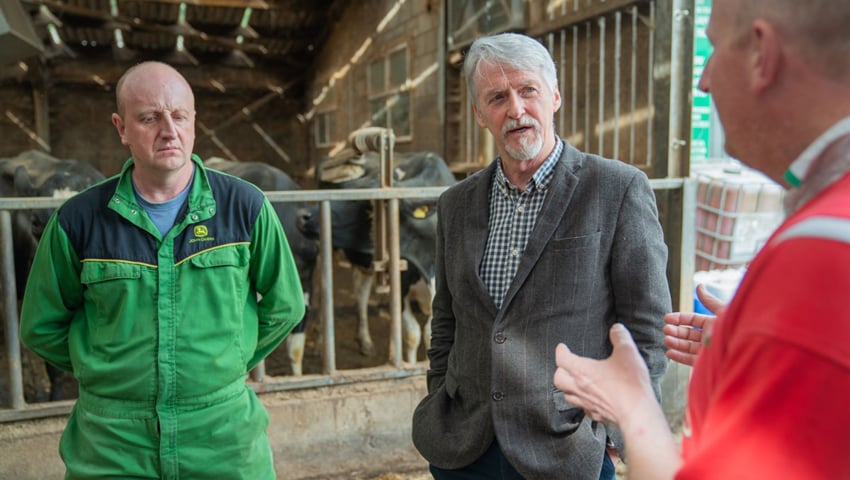The outcomes and recommendations from the Bovine TB Technical Advisory Group’s (TAG) first meeting have been announced.
The TAG’s inaugural meeting was held on 17 April, with the priority to discuss and produce advice regarding the current on-farm slaughter of TB reactors policy.
The Cabinet Secretary for Climate Change and Rural Affairs, Huw Irranca-Davies has accepted the Group’s recommendations in full.
Immediate changes will now be made to the on-farm slaughter policy, with the aim of reducing the numbers of cattle slaughtered on-farm in Wales.
The main reasons cattle may be slaughtered on-farm for TB control purposes are either because they are not able to travel on welfare grounds, particularly if in late pregnancy, or as a consequence of medicine withdrawal periods.
Farmers will be able to choose to delay the removal of a cow or heifer in the last 60 days of pregnancy and animals that have given birth in the previous 7 days, subject to biosecurity conditions to protect other cattle in the herd. Equally, for there to be a limited flexibility to isolate and delay removal if within a few days of the end of a medicine withdrawal period, on a case-by-case basis.
In addition, The Welsh Government, NFU Cymru, FUW and other relevant representatives from the cattle sector will set up an industry-led partnership working group which will continue to look at how on-farm slaughter for different reasons, and it’s impacts, can be minimised through co-design and delivery.
To see the direct impact of TB breakdown on farming families, The Rural Affairs Secretary recently visited Rhadyr Farm, Usk which has been impacted by a TB breakdown.
In addition to the family, the Rural Affairs Secretary met with Farming Unions and vets during the visit to get an opportunity to listen to a range of views relating to TB and on-farm slaughter.
The Cabinet Secretary, said: “We recognise the devastation a TB breakdown brings to a farming family and business.
“The slaughter of cattle on-farm can be particularly distressing to those who witness it and can have a detrimental impact on farmers’ and farmworkers’ wellbeing and mental health.
“Recognising the impact on farmers, their families and their businesses, it is at the forefront of my mind.
“I’d like to thank the TAG for working at pace to deliver these recommendations on such a sensitive subject. We can now start to work on exploring where positive changes can be made to the TB programme.
“We cannot eradicate TB alone. Partnership working with farmers and vets is crucial to reaching the shared goal of a TB-free Wales.”
